The portfolio of beekeepers and bee related products is expanding constantly.
In an interview with Sergey Petrov, Pollenity’s CEO and cofounder, and Vladislav Vasiliev, the startup’s Sales Manager, we found oour more about the Adopt a Hive program, which enables people and companies to get involved and directly support a beekeeper and their hives that have over 60.000 bees each, the software and hardware solutions that Pollenity is bringing to thee market for beekeepers, so that can have access to better information about their hives, and the plans that the Bulgarian team has for the development of the company in thee next years.
The impact honeybees have on our ecosystem and health is critical.
Without bees, the availability and diversity of fresh produce would decline substantially, and human nutrition would likely suffer.
Honeybees play a crucial role in pollinating many of the foods that make up a significant portion of the human diet. An estimated 75% of global food crops depend, at least in part, on pollinators, including honeybees (according to FAO).
Furthermore, the contribution of pollinators to global crop production has been estimated to be worth between $235 and $577 billion per year.
Find out more about Pollenity, the Bulgarian startup that uses teechnology to save the bees and digitizes beekeeping in an exclusive interview for Green Start-Up. You can watch the discussion in the video or you can read some of the most important details below.
Pollenity, the startup that is creating sustainability in the beekeeping sector
Sergey: We are partners in a company called Pollenity and we are creating sustainability in the global beekeeping sector.
I am an engineer, I have a little bit of experience in starting a few other companies and working in a large software company for a number of years. About eight years ago we started working with the bees and ever since it's been a love relationship with them, so I’m kind of hooked on that and I am working for the bees now.
Vlad: He is actually the founder and the CEO of our company and he is the guy who engaged us into the mission of the bees.
To actually accomplish our mission to protect the bees, we need to engage more people and more stakeholders and my role is to find the best way to present the cause, to develop a sustainable business model which brings quality and value to the shareholders in our ecosystem.
Sergey:
Our company is creating sustainability in the global beekeeping sector.
We are doing that in 3 different directions. We are creating technology for the beekeepers, basically IoT that can help beekeepers understand their bees better and better take care of them.
We are also participating in research programs and working with universities on concepts that are actually just starting to look like something usable.
So we have been working on that for more than four years now. We engage a lot in education, we also have a foundation with the same name in Bulgaria, which engages with corporations and helps us deliver value to the underappreciated beekeepers.
We knew that bees are in danger, we also knew that honey is a tremendous product that has been used for thousands of years for its health benefits and for sugar. But the interesting thing is that today, honey is the third most counterfeited food in the world, a fact that creates a lot of distrust between the buyers and the honey producers.
That happens because there is a lot of unknown between the hive and the table.
What our company is achieving is to create the concept of adopting a hive, and we actually list the beekeepers, the genuine people from the villages, next to the genuine product, that is 100% the product that they produce, it’s not mixed in any way, it’s supported by laboratory analysis.
This creates a very interesting bond between the consumers of a food and its producers.
This transparency and traceability created a lot of stir in the Bulgarian environment. For more than 2 years now we’ve managed to become the number one seller of honey business to customers in Bulgaria, which is interesting. It shows that people are interested in this product and it’s a very engaging way of reaching the customer and ensuring its genuinity.
We analyzed this problem in beekeeping and we understood that Romania has a similar ecosystem and that’s why we decided to focus on our neighboring country.
How does Adopt a Hive work
Vlad: The adoption of the beehive is a symbolic gesture. It’s an act that can be done by any person or company. We have different offerings for families and for the corporate clients. The main thing is that the adoption of a hive brings financial stability to the beekeepers. That is why it’s a subscription product, you can subscribe for a few months, or for a year, or even longer.
The second thing is that you are receiving honey from the beekeepers that you support. The third thing is that you receive as much information, as much data as possible and feedback from the hive. You have information on the status of the hive, you can name it, so it’s a very nice activity to do with your kids, for example.
You can have a lot of different things for a lot of audiences, but the main thing is that it can bring financial stability to the beekeepers and provide the customers with quality tested honey.
What to do to be a part of Pollenity
Sergey: First, until we can establish a name, we go after them. Hopefully they will come to us. We want the beekeepers that need to be registered to be registered. They need to be welcoming and outgoing, they need to be genuine people with sustainable products. We get referred beekeepers from other beekeepers and that is great.
Currently, we are working with 30 beekeepers from Bulgaria and we are buying most of their production. That’s sufficient to address our market demand.
We have tens of beekeepers that are on a waiting list and that want to join us. They have been evaluated and we are trying to find a way to capture a bigger market share so that their honey can get to the honey lovers.
A roller coaster ride: how did Pollenity start
Sergey: It’s been a roller coaster ride. In 2015 we started with the concept. We got an angel investment but we didn't know how much money we needed to create hardware products. Then we got a larger investment in 2016, the beginning of 2017. It was about 300.000 euros from a local fund. It was enough to create the prototypes, but not nearly enough to create the whole product and a production line.
We went to America to solve the problem, but we found out that we are not there yet. With the product that we had we were very early on the market. So we shifted our product from B2B to B2C and we see that a lot of customers love the idea, and we have a lot of customers for the technology that we're producing.
But we focused on our local market because we understood that we can create a larger impact there.
So, since 2019 we’ve restructured the company and we became more swift in making business decisions and we decided to really focus on creating an impact on our Bulgarian beekeeping sector.
In just 2 years we managed to lose 30% of the beekeepers due to the economic problems that they experience. So we decided to help them fix this.
The hardware solution
Sergey: We have a line of hardware products called the Bee Bot. There are inside and outside sensors that can help the beekeeper make better decisions about how to handle the bees. This will not do the job of the beekeeper, but it will help him have unprecedented capabilities in terms of data.
We can give beekeepers a whole range of information on how the bees are doing, productivity and health, and real time data that can help the beekeeper make better decisions.
Vlad: We are working now on the design of the next generation. We will soon have a new version that can offer them more information and we will offer them in Romania as well.
The software and hardware are 100% developed by our engineering team.
Plans for the future
Sergey: Our projection is that we will achieve break even towards the end of this year and if we see the opportunity to acquire a company or develop a new product, or something that has great potential, we may look into it.
Vlad: In the next 2 years we are going to be present in at least 7 countries in Europe and to have the first version of an European wide platform where beekeepers and people can come together and have a stable community around the Adopt a Hive project.
 Oana Coșman
Oana Coșman

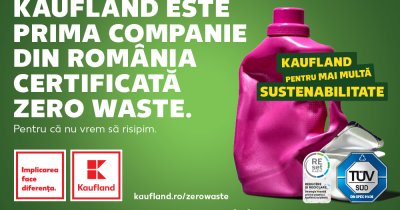
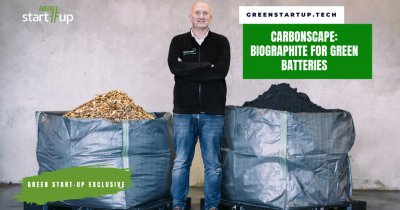

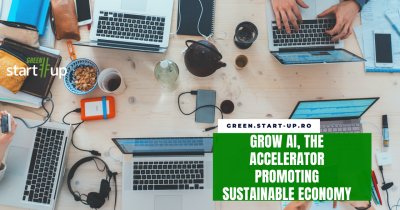

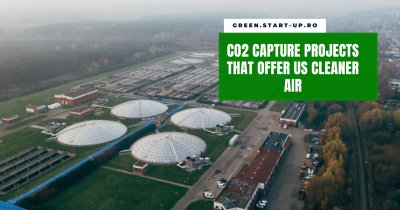
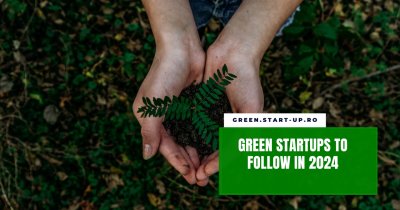
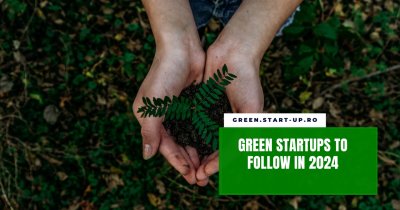
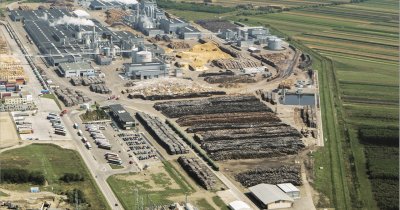

Any thoughts?